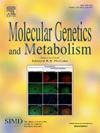粘多糖病VI:治疗策略和前景。
IF 3.5
2区 生物学
Q2 ENDOCRINOLOGY & METABOLISM
引用次数: 0
摘要
粘多糖病(Mucopolysaccharidosis VI)又称Maroteaux-Lamy综合征,是一种由ARSB基因致病性突变引起的溶酶体贮积障碍(LSD),导致芳基硫酸酯酶(ARSB)缺乏,溶酶体积聚硫酸皮肤素(DS)和硫酸软骨素4 (C4S)。DS和C4S积累导致MPS VI患者软骨、骨、心脏瓣膜、角膜、肝脏和呼吸道的多系统症状。目前,酶替代疗法(ERT)是唯一被批准用于MPS VI患者的治疗方法,提供包括增加生存期和改善生活质量在内的临床益处。然而,ERT对骨表现的影响有限。使用经典腺相关病毒和CRISPR/Cas9系统的基因治疗(GT)取得了重大进展,为MPS VI提供了有希望的替代方案。重要的是,造血干细胞移植(HSCT)联合GT也可能提供一种新的替代方案。此外,在MPS VI中已经探索了底物减少疗法、免疫调节和停止密码子读取疗法。MPS VI的未来方向应该包括靶向细胞改变,如线粒体功能障碍,探索软骨靶向替代品,以及实施药物伴侣。这篇文章强调了治疗MPS VI的最新进展和新兴策略。本文章由计算机程序翻译,如有差异,请以英文原文为准。
Mucopolysaccharidosis VI: Therapeutic strategies and perspectives
Mucopolysaccharidosis VI, also known as Maroteaux-Lamy syndrome, is a lysosomal storage disorder (LSD) caused by pathogenic mutations in the ARSB gene, resulting in arylsulfatase (ARSB) deficiency and the lysosomal accumulation of dermatan sulfate (DS) and chondroitin 4-sulfate (C4S). DS and C4S accumulation leads to multisystemic symptoms in MPS VI patients in cartilage, bone, heart valves, cornea, liver, and respiratory tract. Currently, enzyme replacement therapy (ERT) is the only approved treatment for patients with MPS VI, providing clinical benefits that include increased survival and improved quality of life. However, ERT has a limited impact on bone manifestations. Significant advances have been made in gene therapy (GT) using classical adeno-associated virus and the CRISPR/Cas9 system, providing promising alternatives in MPS VI. Importantly, hematopoietic stem cell transplantation (HSCT) in combination with GT may also offer a novel alternative. Additionally, substrate reduction therapy with odiparcil, immunomodulation, and stop codon read-through therapies have been explored in MPS VI. Future directions in MPS VI should include targeting cellular alterations, such as mitochondrial dysfunction, exploring cartilage-targeting alternatives, and implementing pharmacological chaperones. This manuscript highlights recent progress and emerging strategies for treating MPS VI.
求助全文
通过发布文献求助,成功后即可免费获取论文全文。
去求助
来源期刊

Molecular genetics and metabolism
生物-生化与分子生物学
CiteScore
5.90
自引率
7.90%
发文量
621
审稿时长
34 days
期刊介绍:
Molecular Genetics and Metabolism contributes to the understanding of the metabolic and molecular basis of disease. This peer reviewed journal publishes articles describing investigations that use the tools of biochemical genetics and molecular genetics for studies of normal and disease states in humans and animal models.
 求助内容:
求助内容: 应助结果提醒方式:
应助结果提醒方式:


